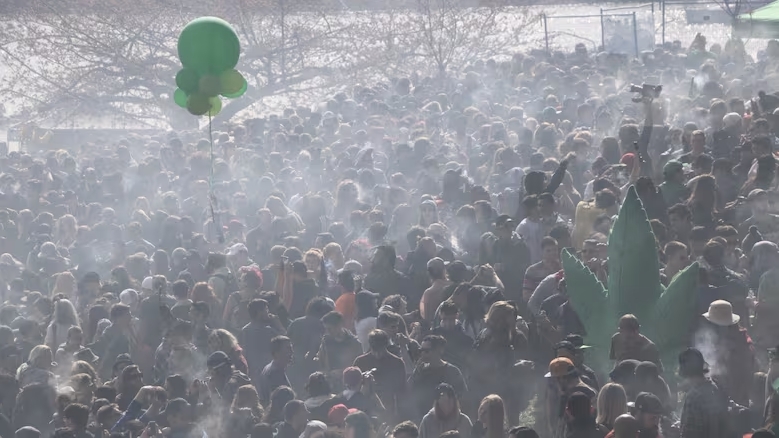Craft Cannabis Summit Urges B.C. to Embrace Cannabis Tourism, Ease Regulations
Liam O'Connell
4/21/20252 min read


As British Columbia faces economic pressure from U.S. tariffs and a declining forestry sector, small-scale cannabis farmers are pushing for urgent policy reforms they say could turn the province into a global destination for cannabis tourism.
Over the long weekend, dozens of producers, researchers, and advocates gathered in Victoria for the B.C. Craft Cannabis Summit, hosted by the B.C. Craft Farmers Co-op. The four-day event concluded Sunday with a 4/20 celebration on the lawn of the provincial legislature — and a strong message for government.
“With deficits growing and forestry in decline, now is the time to embrace B.C.’s cannabis legacy,” said Tara Kirkpatrick, co-op president. “The sector has a $2 billion footprint and enormous untapped potential.”
5 Reforms in 90 Days
The co-op is calling on the B.C. government to take five immediate actions to help small growers survive and grow:
Eliminate the 15% “proprietary fee” on direct delivery sales.
Reduce the $7,500 farm gate licence fee for retail shops on-site at farms.
Allow cannabis consumption at farms — similar to wineries and breweries.
Grant cannabis growers agricultural status to qualify for tax breaks and subsidies.
Expand tourism licensing options, such as temporary permits for venues and events.
“Cannabis is treated like a crop in every way — except for farm status,” said Kim Qvist, director of Life Cycle Botanicals in Nanoose Bay. “Businesses are shutting down while the province continues to collect taxes. We need actual support.”
A Missed Tourism Opportunity?
A major focus of the summit was cannabis tourism — a sector that experts say B.C. is uniquely poised to lead in but is being held back by restrictive laws.
“Cannabis is legal to buy, but there’s nowhere legal to consume it socially,” said Qvist. “It’s a missed opportunity for safer use and for reducing stigma.”
A federally funded study from the University of Guelph found that the lack of consumption spaces — such as lounges, sampling patios, or guided tours — is stalling the development of a tourism industry.
“If there’s anywhere in Canada that should be thriving with cannabis tourism, it’s Vancouver Island,” said Dr. Susan Dupej, the study’s co-author. “We have farms, culture, and consumer interest — but no framework to support it.”
Dupej says a “B.C. Cannabis Trail” — modeled on the popular B.C. Ale Trail — and regulated public spaces for cannabis use could help unlock the province’s potential as a destination for cannabis travelers.
Province Says It’s Listening
In a statement to CBC News, the Ministry of Public Safety and Solicitor General said the province recognizes cannabis as “a key economic growth sector” and has been meeting with stakeholders to hear their concerns.
“We’re actively working with the federal government to address industry challenges, including reviewing the excise tax that impacts small producers,” the statement said.
The ministry also confirmed that cannabis is part of several 2025 provincial mandate letters across tourism, agriculture, and public safety portfolios — signaling it may play a bigger role in future economic planning.
“B.C. has made several regulatory changes already and will continue to support the legal market while prioritizing public health and displacing the illicit market,” the statement said.
For advocates and small growers, the hope is that the province’s next move will turn promises into policy — before more farms are forced to close and B.C.’s chance to lead in cannabis tourism goes up in smoke.
News
Stay updated with the latest BC news stories, subscribe to our newsletter today.
SUBSCRIBE
© 2025 Innovatory Labs Inc.. All rights reserved.
LINKS
